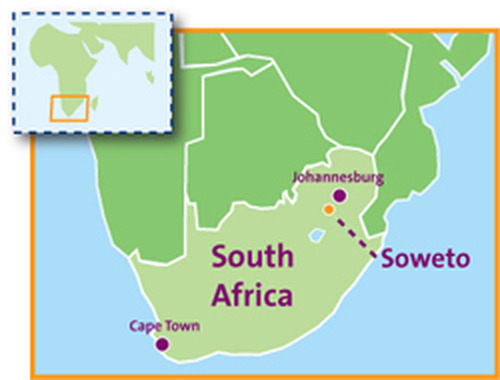On a trip to South Africa, Princess Anne of Great Britain took time to visit the Soweto Equestrian Foundation to see the great work they are doing there and to see first hand the World Horse Welfare Farrier and Saddler Training Programme affiliated with the Cart Horse Protection Association. Her visit has helped focus attention on the plight of horses in South Africa.

Protecting horses in South Africa
Goal: A regulated Cape Flats carting industry, with all cart horses fit, healthy and happy, and comfortable in their work.
The Cart Horse Protection Association is committed to the welfare of the working cart horse and will continue to be involved with the carting community at grassroots level, maintain a strong and dedicated leadership, encourage participation of our beneficiaries in protecting the welfare of the working horse and their source of income, provide education and training and ensure sound financial management of donor funds.
Over the years the Cart Horse Protection Association has proved to be a creditable NPO working in the field of animal welfare with excellent social investment returns for funders and donors.
In 1995 the Cart Horse Protection Association (CHPA) was established, providing vital services and education to the cart horse owners on the side of road and later from two rusty shipping containers, in an attempt to address the appalling conditions in which these working horses lived and worked.
The carting industry today has a proud heritage rooted in District Six where horses and carts were used to “smouse” (hawk) fish, fruit, vegetables, bottles and bones. Horses were kept in community stables found on every street corner, they traveled short distances with light loads and business was lucrative for the cart horse owner. With the forced removals of these communities to the Cape Flats, the lives of the cart horse owner, his family and his horses took a turn for the worst. Now living far from their markets, hawking was no longer a viable option and communities began using horses and carts for the collection of scrap metal as a means of generating an income.
This new carting industry led to the renting out of horses and carts and an increase in cart horse operators who had limited knowledge on how to properly care for and maintain a working horse. Consequently, badly shod, thin, overloaded, overworked and abused working cart horses became a common site on Cape Town’s roads.
Our Vision
A regulated Cape Flats carting industry, with all cart horses fit, healthy and happy (comfortable) in their work.
Our Mission
To protect working cart horses from abuse, and contribute to the upliftment and training of the Cape Flats carting community.
Our Aim
To provide clinic, patrol, call out response, veterinary and rehabilitation services to working cart horses on the Cape Flats. To offer support, education and training to cart horse owners and drivers who collect scrap metal as a means of generating income for themselves and their families. It is estimated that working cart horses support over 6000 people on the Cape Flats.
With the acquisition of the Recovery and Rehabilitation Centre was made possible by a generous bequest from the Late BT van Vliet. The Centre situated on the N2 near Somerset West consists of 26 stables, paddocks with shelters, tack room, feed barn, an indoor arena and accommodation for an on-site manager and grooms.
The Centre provides:
- A place of safety for working cart horses whose owners and drivers continue to abuse and neglect them, despite our efforts at education and the services offered at the static clinics
- Accommodation for sick and injured horses requiring palliative care
- A safe haven for working cart horses needing rest and rehabilitation
- Maternity care for foaling mares.
The Cart Horse Protection Association accepts donations to support their work.
